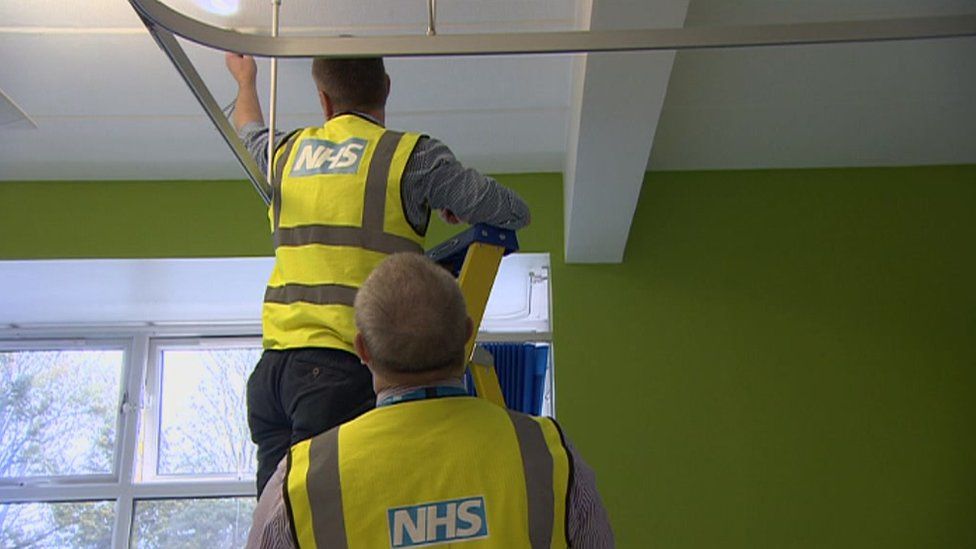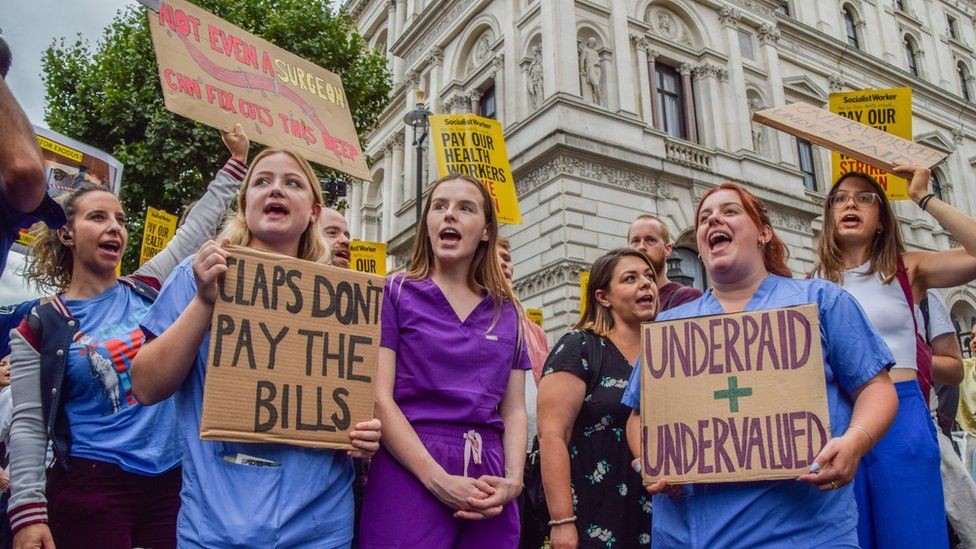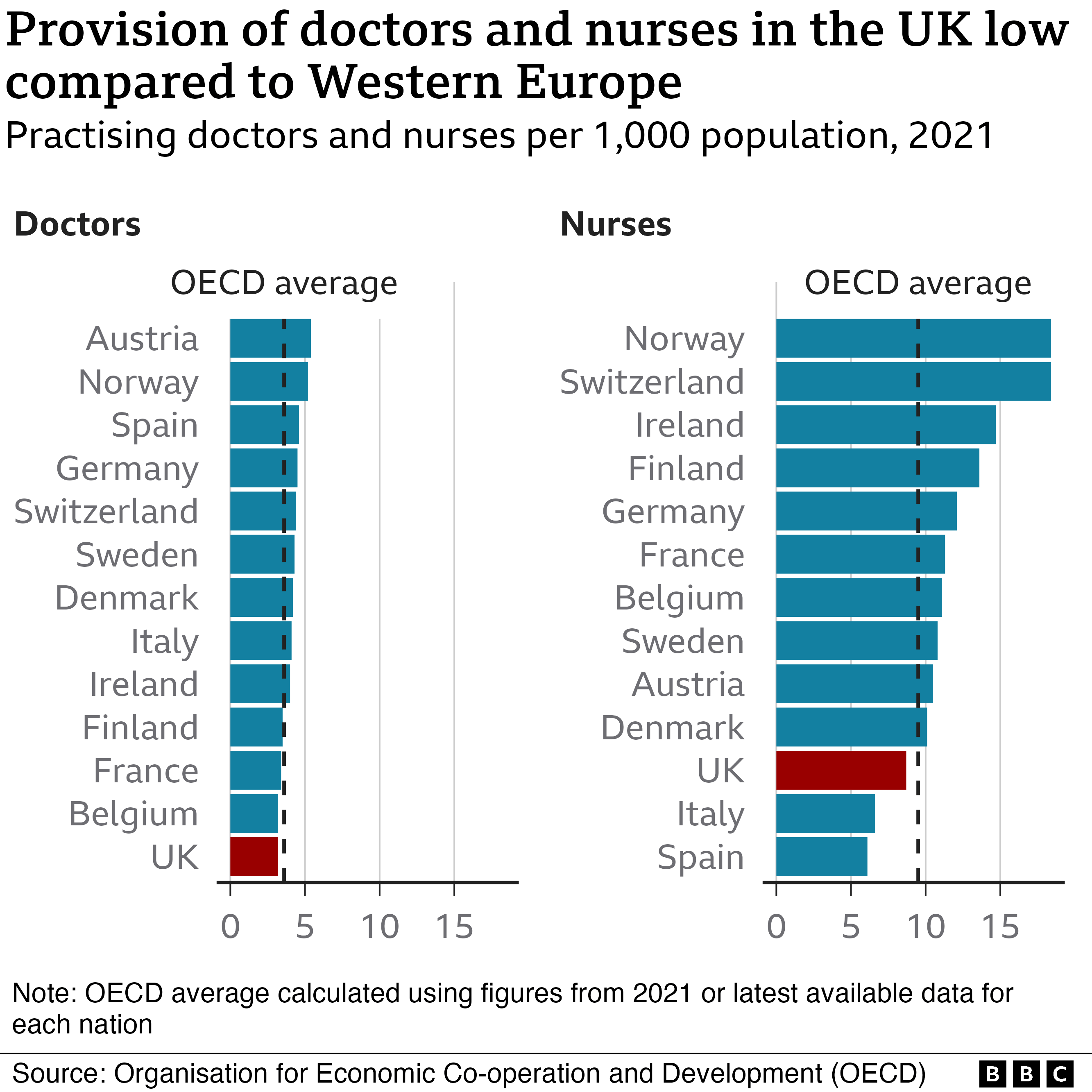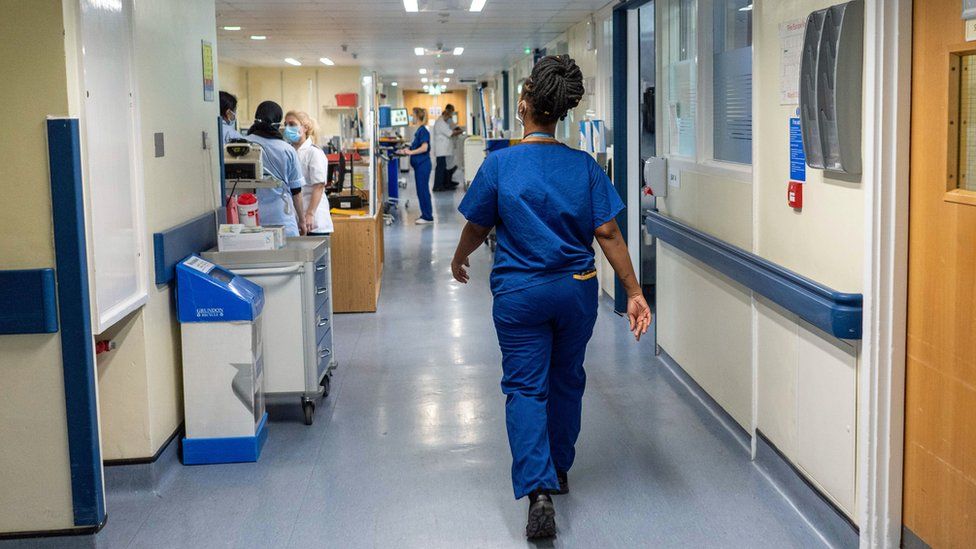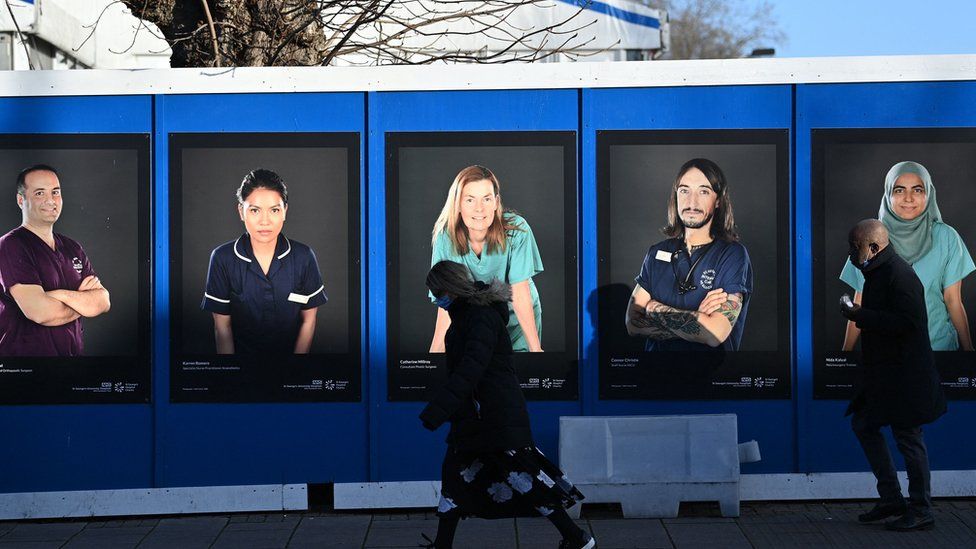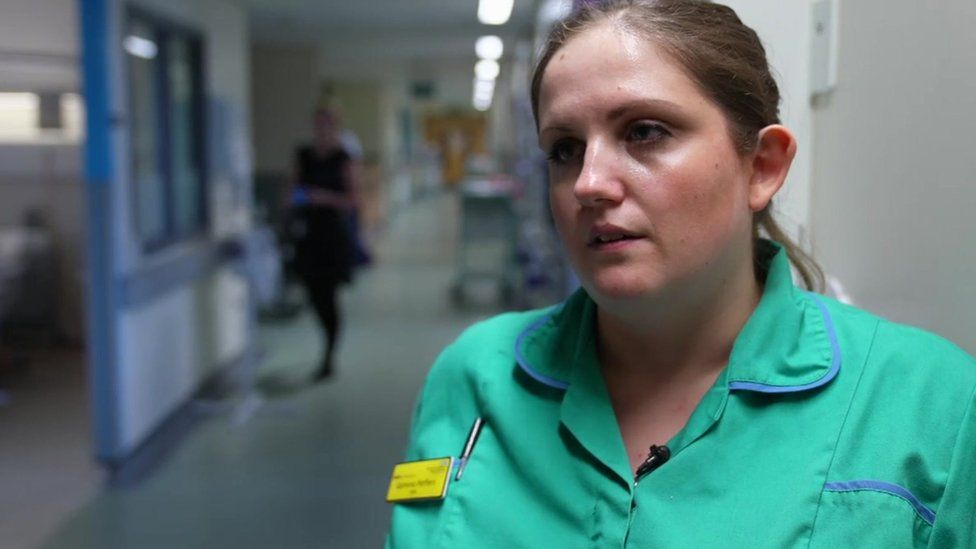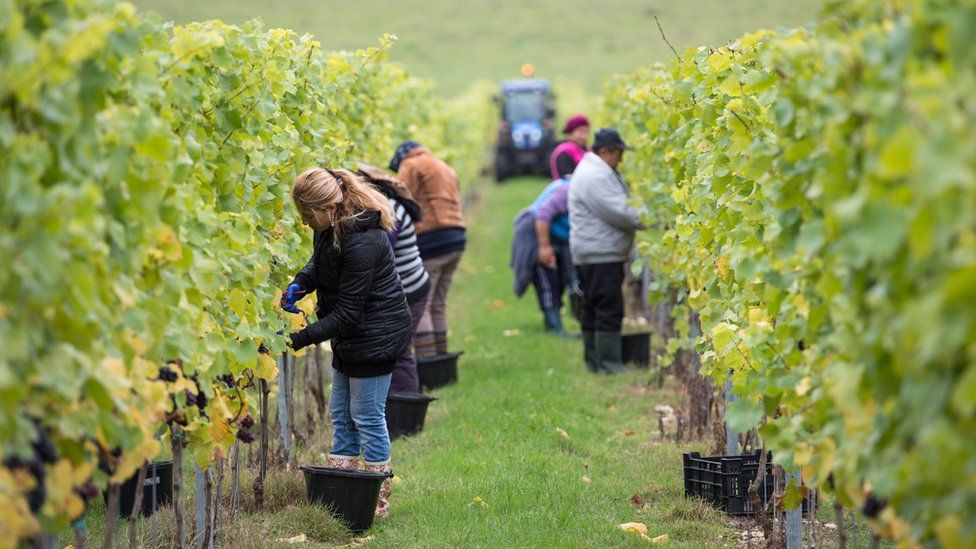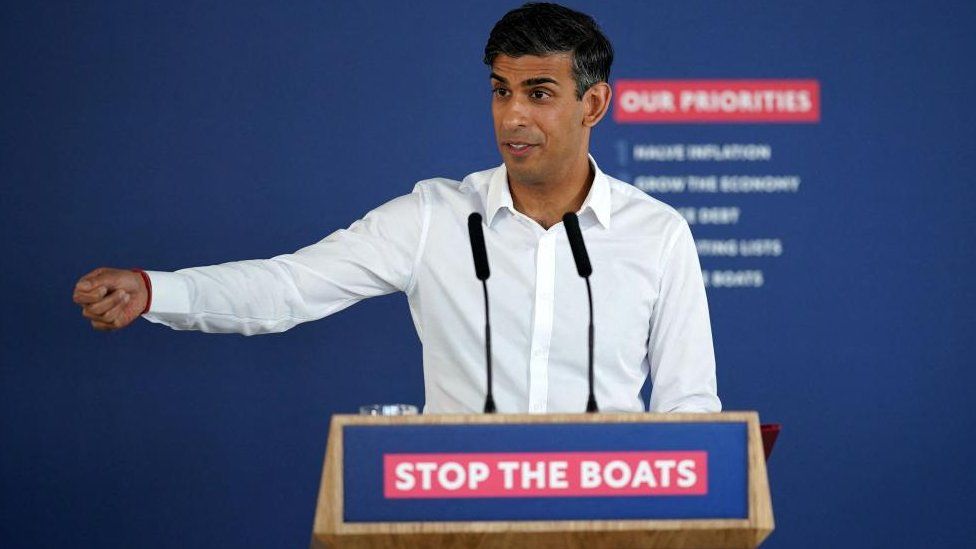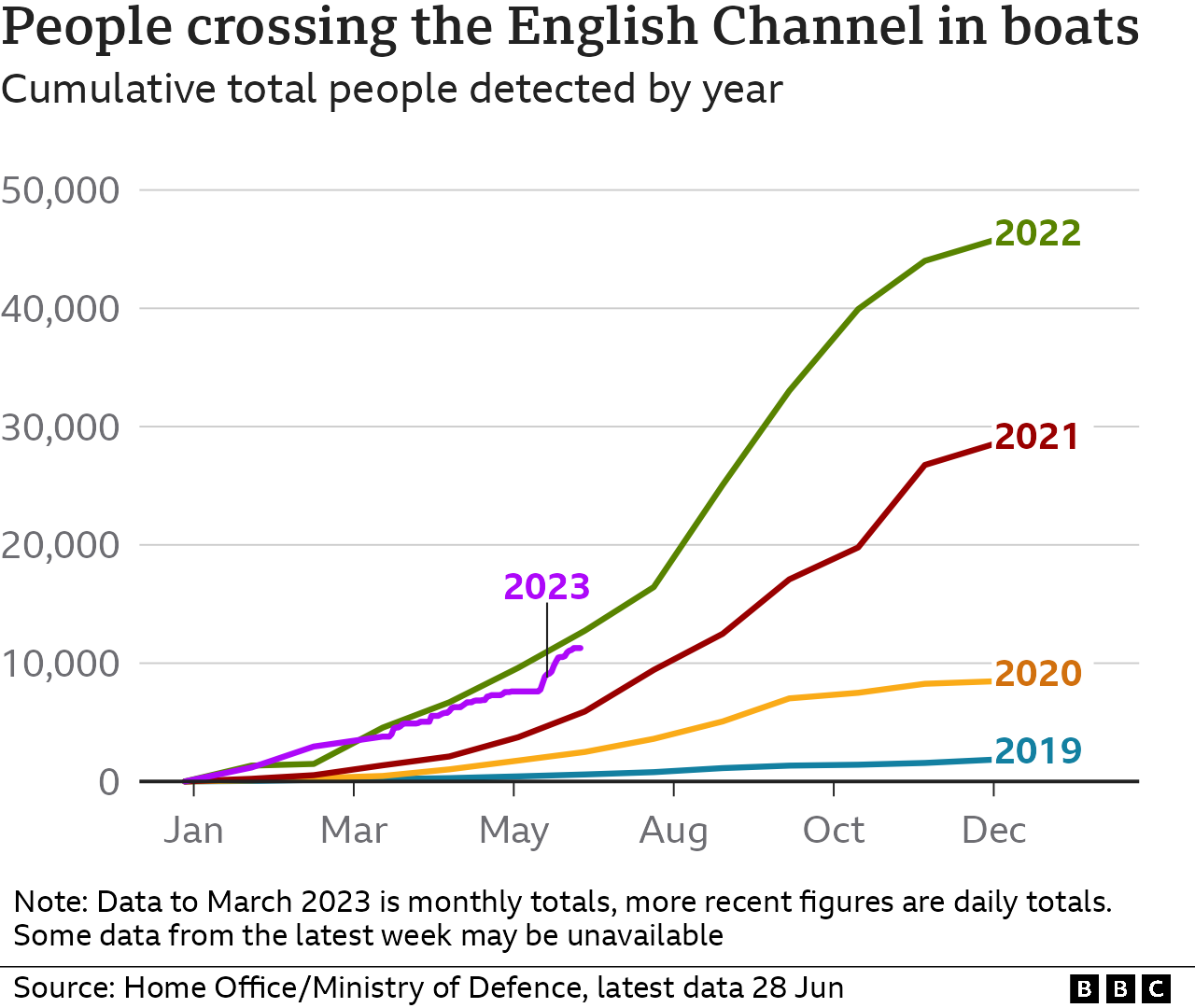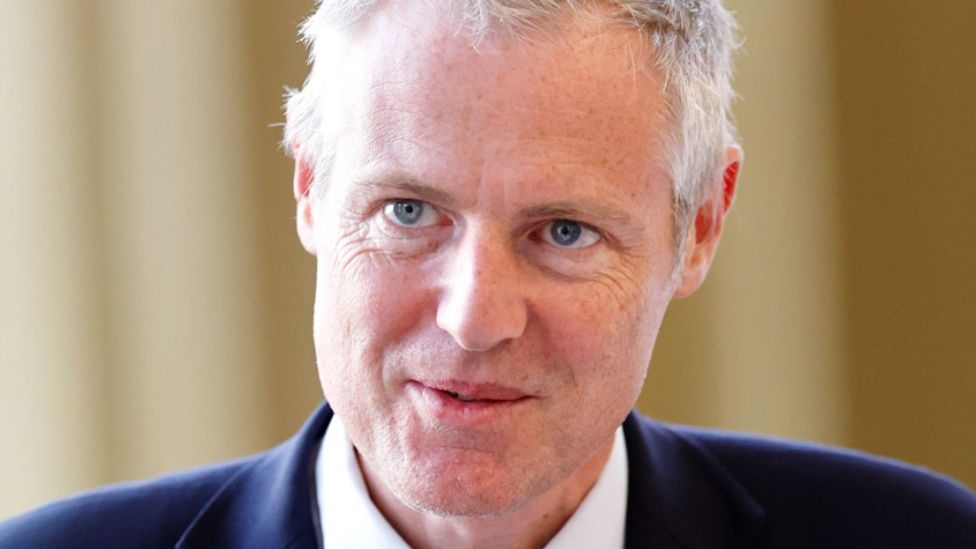
Lord Zac Goldsmith has hit back at Rishi Sunak's claim he refused to apologise for criticising a Commons investigation into Boris Johnson.
The Tory peer earlier resigned as a minister with a scathing attack on Mr Sunak's "apathy" over climate change.
Mr Sunak said Lord Goldsmith had quit after being asked to apologise for comments he made about the Privileges Committee inquiry.
But Lord Goldsmith has told the BBC the prime minister was "wrong".
"I am happy to apologise for publicly sharing my views on the Privileges Committee," said Lord Goldsmith.
"I firmly believe our parliamentary democracy can only be strengthened by robust scrutiny, and parliamentarians should of course be free to be critical of its reports and proceedings.
"But as a minister I shouldn't have commented publicly. No 10 asked me to acknowledge that, and made clear that there was no question of my being 'sacked' if I did so. I was - and am - happy to do so. "My decision to step down has been a long time coming."
'Utterly betrayed'
In a scathing resignation letter, which did not mention the Privileges Committee report, Lord Goldsmith said he had been "horrified" at the government abandoning its environmental commitments and withdrawing its leadership on the world stage.
He cited a flagship animal welfare bill being ditched, as well as an abandoned pledge to spend £11.6bn of UK aid on climate and environment.
Lord Goldsmith told BBC climate editor Justin Rowlatt the pledge would not be met because of "low levels of expenditure so far", combined with a decision to classify spending on Afghan and Ukrainian refugees in the UK as overseas aid.
Small island nations would be left "feeling utterly betrayed," whilst "our reputation as a reliable partner will simply be shredded," he added.
However, in a letter to Lord Goldsmith, Mr Sunak said: "You were asked to apologise for your comments about the Privileges Committee as we felt they were incompatible with your position as a Minister of the Crown. You have decided to take a different course."
He said Lord Goldsmith had been "a vocal advocate of some of the most important issues that the UK and the world face today".
Mr Sunak added: "The UK continues to play an important role globally in tackling climate change and preserving the environment."
It comes two days after a government climate watchdog warned the UK had lost its leadership on climate issues.
As a minister in the Foreign Office, Lord Goldsmith had responsibility for Asia, energy, climate and the environment.
Chancellor Jeremy Hunt said he did not agree with Lord Goldsmith's comments about Mr Sunak's attitude towards the environment.
He told BBC Radio 4's World at One: "I know the prime minister is as proud as I am that the UK has reduced our emissions by more than any other advanced economy. We have led the way when it comes to climate issues internationally."
But, he added, the government needed to get the economy "back on track" to be able to "continue to invest at the rate we want to in the transition to net zero".
Both Labour and the Liberal Democrats had called for Lord Goldsmith to resign after the Privilege Committee report's publication on Thursday.
However, Mr Sunak's official spokesman had said the prime minister continued to have full confidence in him.
Lib Dem spokeswoman Sarah Olney, who won her Richmond Park seat from Lord Goldsmith in 2019, said Mr Sunak "should have had the guts" to sack him.
Ms Olney claimed his resignation confirmed the government "doesn't give a damn about the environment and animal rights".
Labour's shadow environment secretary Jim McMahon said: "Rishi Sunak's weakness is laid bare as 24 hours after he refused to condemn Zac Goldsmith, Goldsmith scathingly condemns him."
Former Culture Secretary Nadine Dorries, another close ally of Mr Johnson who was named in the Privileges Committee report, said Lord Goldsmith's "passion" for the environment was "second to none" and that the government had been "lucky" to have him.
The committee's report said "unprecedented and co-ordinated pressure" was placed on its members, who were investigating whether former Prime Minister Mr Johnson had misled Parliament over lockdown parties at Downing Street.
A tweet by Lord Goldsmith, in which he expressed support for the view that the inquiry was a "witch hunt" and a "kangaroo court", was cited in the report's evidence.
However, other Tories named in the report accused the committee of trying to shut down freedom of speech.
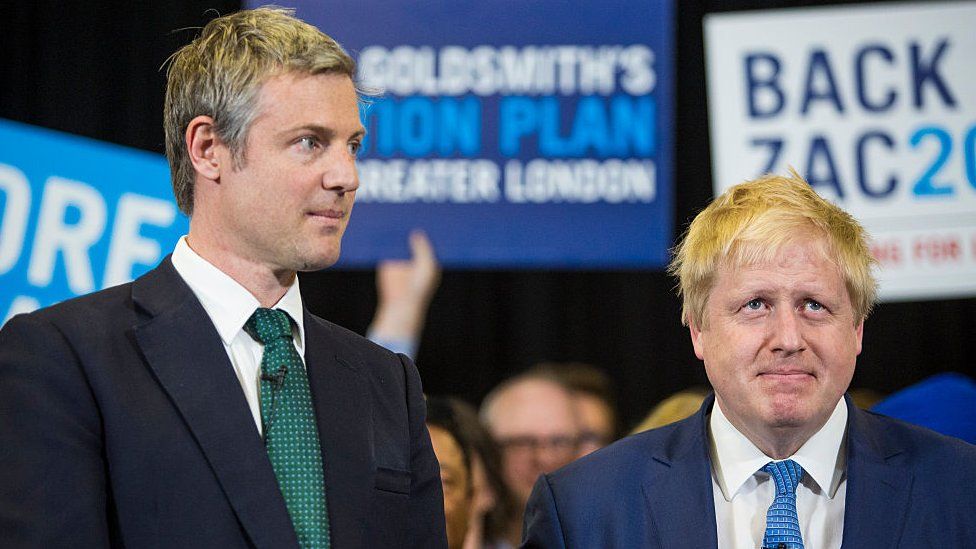
Mr Johnson announced he was resigning as an MP days before the committee published its initial findings, branding the investigation a "kangaroo court".
The year-long inquiry found Mr Johnson made multiple deliberately misleading statements to Parliament about lockdown parties at Downing Street.
It ruled he should have been suspended for 90 days had he remained in the Commons.
The sanction, which was lengthy by recent standards, would have been likely to trigger a by-election in Mr Johnson's constituency.
Lord Goldsmith, a close ally of Mr Johnson, previously served as a junior environment minister in his government.
He was made a peer by Mr Johnson after losing his seat as Conservative MP for Richmond Park to the Liberal Democrats in the 2019 general election.
He was first elected as an MP in 2010, and in 2016 ran unsuccessfully to be the mayor of London.

Sign up for our morning newsletter and get BBC News in your inbox.

Related Topics
https://news.google.com/rss/articles/CBMiLWh0dHBzOi8vd3d3LmJiYy5jb20vbmV3cy91ay1wb2xpdGljcy02NjA2Mzg5NNIBMWh0dHBzOi8vd3d3LmJiYy5jb20vbmV3cy91ay1wb2xpdGljcy02NjA2Mzg5NC5hbXA?oc=5
2023-06-30 17:28:05Z
2199845466

